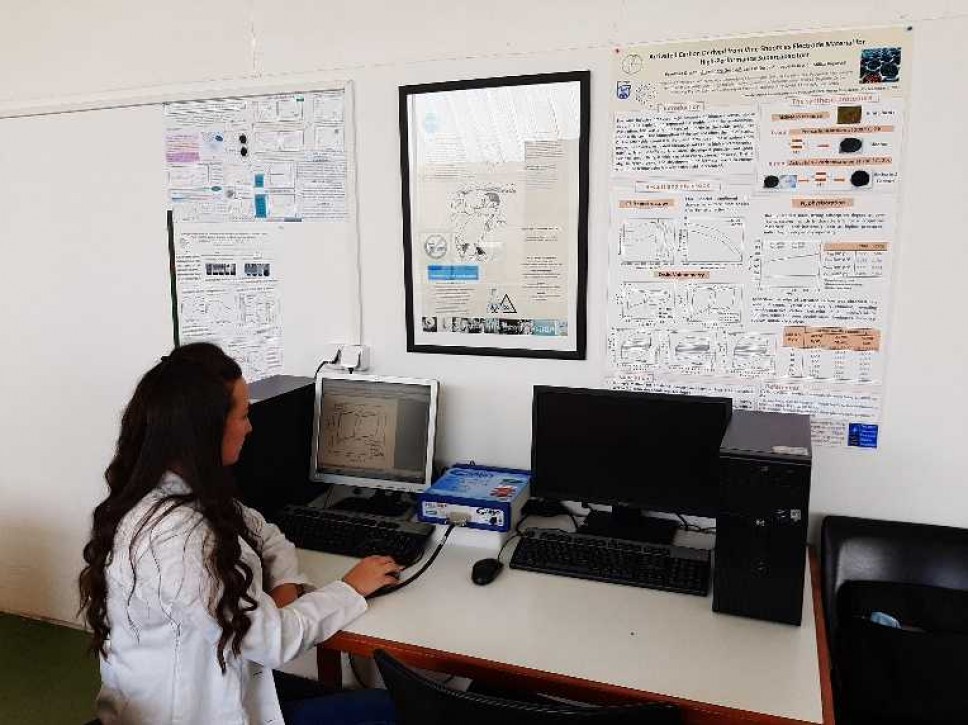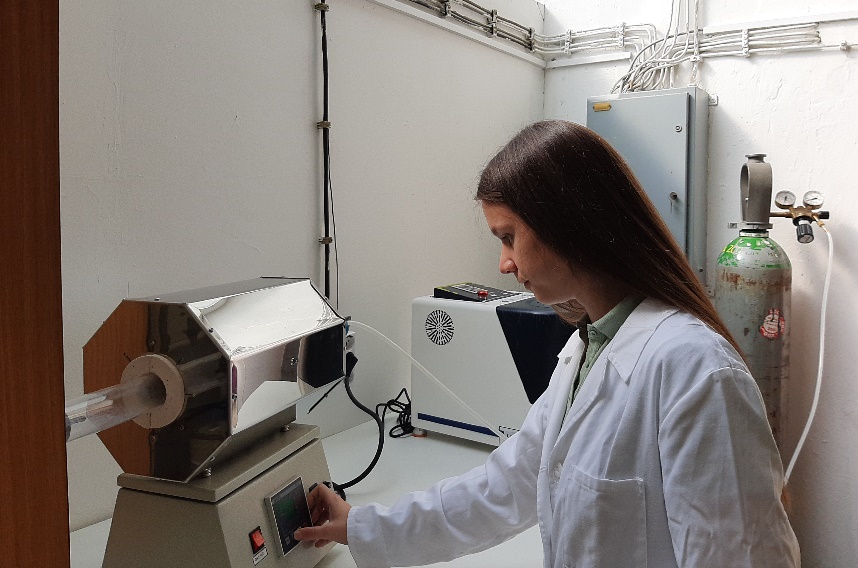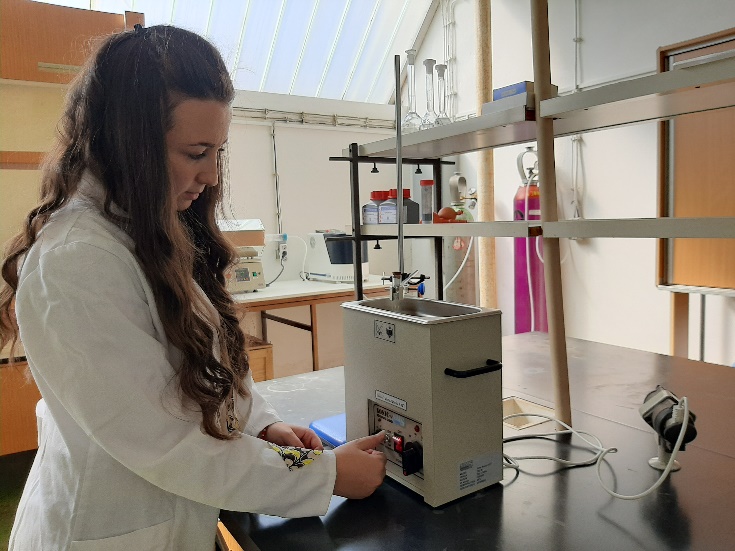Razvoj nove generacije baterija i superkondenzatora kroz projekat SUPERCAR


 Razvoj nove generacije baterija i superkondenzatora, zasnovanih na jeftinoj i ekološki prihvatljivoj nanotehnologiji ugljenika dobijenog iz biomase, cilj je projekta na kojem je partner Metaluško tehnološki fakultet Univerziteta Crne Gore.
Razvoj nove generacije baterija i superkondenzatora, zasnovanih na jeftinoj i ekološki prihvatljivoj nanotehnologiji ugljenika dobijenog iz biomase, cilj je projekta na kojem je partner Metaluško tehnološki fakultet Univerziteta Crne Gore.
Riječ je o trogodišnjem međunarodnom projektu "Baterije i superkondezatori na bazi ugljenika" (Carbon-based Batteries and Supercapacitors – SUPERCAR, 2021-2024), koji je odobren u okviru NATO programa ,,Nauka za mir i bezbjednost“.
Rukovodilac ovog projekta, prof. dr Veselinka Grudić, redovni profesor i dekan Metaluško tehnološkog fakulteta, objašnjava da će u okviru projekta biti razvijen set novih nanoporoznih ugljeničnih elektroda za sledeću generaciju punjivih baterija i superkondenzatora (koji ne sadrže litijum), oslanjajući se na široko dostupne elemente poput natrijuma (Na), magnezijuma (Mg), kalcijuma (Ca) i aluminijuma (Al).
„Najsavremenije litijum-jonske baterije i litijum-jonski hibridni kondenzatori predstavljaju dobar izbor u pogledu energije i snage. Međutim, njihova masovna primjena (poput onih u električnim vozilima i električnim mrežama) ozbiljno je ograničena količinom litijuma i visokom cijenom. Svijest o ograničenim resursima litijuma na Zemlji pokrenula je intenzivna istraživanja izvan tehnologije litijuma, gdje se Na, Mg, Ca i Al, zbog njihove velike zastupljenosti u prirodi, ističu kao najperspektivniji kandidati. Sa druge strane, nedostatak grafita koji se prvenstveno koristi kao anoda litijum-jonskih baterija je nemogućnost skladištenja velike količine viševalentnih jona tokom punjenja/pražnjenja. To je jedna od ključnih prepreka za razvoj alternativnih sistema za skladištenje energije. Upravo ovim problemima se bavi projekat SUPERCAR, sa osnovnom idejom da se pronađu novi, jeftini i visoko bezbjedni ugljenici, pogodni za primjenu u sljedećoj generaciji uređaja za skladištenje energije bez litijuma“, objašnjava profesorka Grudić.
 Uloga elektrohemijskih sistema za skladištenje (ESS) u smanjenju potrošnje fosilnih goriva i emisije gasova staklene bašte je od suštinske važnosti, zahvaljujući njihovoj sposobnosti da skladište energiju (iz obnovljivih izvora) i isporučuju je električnim vozilima, dodaje ona.
Uloga elektrohemijskih sistema za skladištenje (ESS) u smanjenju potrošnje fosilnih goriva i emisije gasova staklene bašte je od suštinske važnosti, zahvaljujući njihovoj sposobnosti da skladište energiju (iz obnovljivih izvora) i isporučuju je električnim vozilima, dodaje ona.
„U prvih šest mjeseci bili smo usredsređeni na optimizaciju procesa karbonizacije otpadne biomase u cilju sinteze ugljeničnih materijala visoke sposobnosti skladištenja naelektrisanja, a koji bi se mogli koristiti u Na- i Al-jonskim baterijama i superkondenzatorima. Za sintezu prve serije ugljeničnih materijala koristili smo otpadnu biomasu iz proizvodnje vina (grane vinove loze) pri čemu su dobijeni obećavajući rezultati, čija je priprema za publikaciju u renomiranom međunarodnom časopisu u toku. Stabljika grožđa bila je naš prvi izbor, kao nusproizvod industrije vina vrlo zastupljen u našoj zemlji“, kaže profesorka Grudić.
Crnogorska nacionalna kompanija „Plantaže“, a i brojne druge privatne vinarije još uvijek, smatra ona, nijesu u potpunosti riješile pitanje odlaganja i korištenja ovog otpada, pa je njegova valorizacija u cilju dobijanja proizvoda visoke vrijednosti od velikog značaja za našu zemlju.
„Dalje aktivnosti će biti usmjerene na pronalaženje novih strategija sinteze u cilju poboljšanja skladištenja naelektrisanja viševalentnih jona, zajedno sa fundamentalnim razumijevanjem kinetike površinskih procesa na ugljenicima“, najavila je profesorka Grudić.
 Na projektu učestvuju i mladi istraživači sa Metalurško-tehnološkog fakulteta, MSc Jana Mišurović, saradnik u nastavi, i MSc Aleksandra Gezović, student doktorskih studija. Pored rada na matičnoj instituciji, istraživačima će kroz projektom planirane treninge, biti omogućeno profesionalno usavršavanje u partnerskim instutucijama. Projekat takođe otvara mogućnosti za studente svih nivoa studija Metalurško-tehnološkog fakulteta, da se kroz izradu stručnih radova uključe u istraživanja u ovoj potpuno novoj oblasti istraživanja u Crnoj Gori. Zahvaljujući sredstvima obezbijeđenim ovim projektom biće nabavljen stoni rendgenski difraktometar i ostala sitnija oprema koja će značajno unaprijediti istraživačke kapacitete Fakulteta.
Na projektu učestvuju i mladi istraživači sa Metalurško-tehnološkog fakulteta, MSc Jana Mišurović, saradnik u nastavi, i MSc Aleksandra Gezović, student doktorskih studija. Pored rada na matičnoj instituciji, istraživačima će kroz projektom planirane treninge, biti omogućeno profesionalno usavršavanje u partnerskim instutucijama. Projekat takođe otvara mogućnosti za studente svih nivoa studija Metalurško-tehnološkog fakulteta, da se kroz izradu stručnih radova uključe u istraživanja u ovoj potpuno novoj oblasti istraživanja u Crnoj Gori. Zahvaljujući sredstvima obezbijeđenim ovim projektom biće nabavljen stoni rendgenski difraktometar i ostala sitnija oprema koja će značajno unaprijediti istraživačke kapacitete Fakulteta.
PARTNERI NA PROJEKTU
Pored Metalurško-tehnološkog fakulteta, partneri na projektu su Nacionalni institut za hemiju u Ljubljani i Fakultet za fizičku hemiju Univerzitet u Beogradu. Rukovodioci sa strane partnerskih zemalja Slovenije i Srbije su dr Robert Dominko, redovni profesor na Fakultetu za hemiju i hemijsku tehnologiju Univerziteta u Ljubljani i vodeći istraživač u Nacionalnom institutu za hemiju u Ljubljani i dr Milica Vujković, viši naučni saradnik na Fakultetu za fizičku hemiju Univerziteta u Beogradu.
Tim profesorke Grudić, koji se trenutno jedini bavi elektrohemijskim izvorima energije u Crnoj Gori, će sarađujući sa partnerima iz Slovenije i Srbije, imati priliku da razvija i ojača ovo aktuelno istraživačko područje. SUPERCAR projekat okuplja tri institucije, ne samo da bi poboljšali svoje istraživačke kapacitete i resurse, već i da bi postigli napredak u budućoj tehnologiji skladištenja energije.

